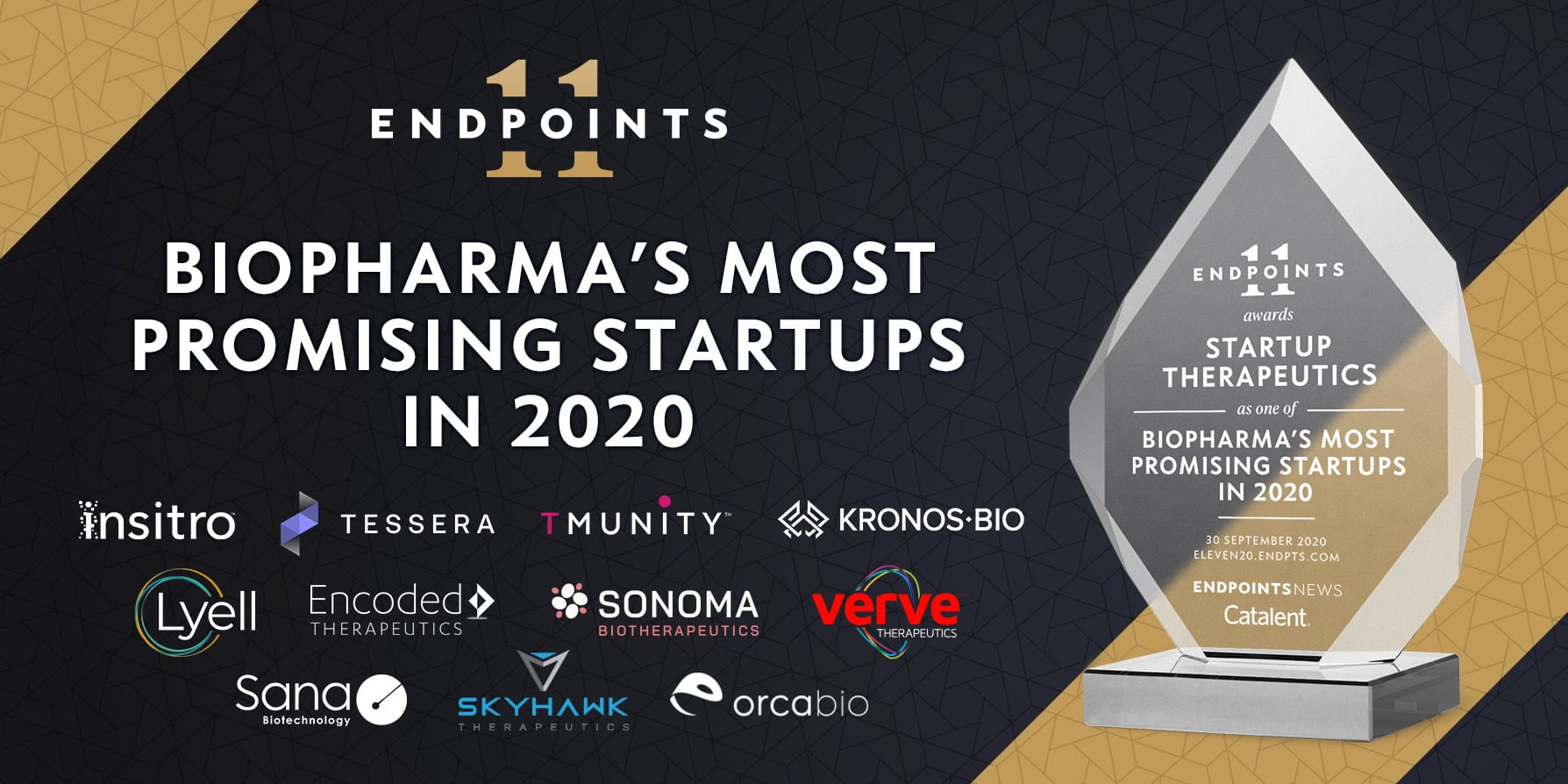
The Endpoints 11: Here are some of the most promising startups in biotech. And Covid-19 isn't going to stop them
Quite often when I highlight a private, typically early-stage biotech company for these annual awards, I’m asked what I look for in a company. How do you define an Endpoints 11 company?
[Register for the Endpoints 11 event here. No cost to attend.]
There’s a simple enough answer. First, I look for big ideas among the private biotechs which qualify for review, a swing for the fences. I’m drawn to people who are willing to gamble a chunk of their lives on new drug ideas, and in that regard, the stakes here are huge. Drug development is long and hard, and you could easily be wagering 10 or more years of your life on something. So go big or go home if you aren’t planning to do something transformative.
I want a team directing these projects that have the talent, vigor and knowhow to make it happen. Track records are key and earlier failures can be a big plus — depending on how that played out.
People are always more important than money. That’s a mantra of mine that always earns quick nods in any biotech group. But making sure that a company has enough lucre to make it through to proof of concept, and beyond, is also key to the selection process.
Still, you’ll find companies below that raised a few million to get started, and biotechs that appear to have found the key to Fort Knox. So it’s variable.
And then there’s the noise factor. I want to choose companies that can earn widespread recognition for success — or make a hell of a noise if they fail. None of these companies below will slink off to an anonymous midnight burial if they fall short of victory. They’ll make a noise heard throughout the global industry, and we can all learn from it.
This year, with a pandemic raging around the world, I wanted to focus more on culture than particular assets. Each of these biotechs is sorting out the R&D work, but I want to let the execs reflect more on the most important points of starting a company than the specific program goals in mind. Building companies these days takes some newfound ingenuity, and it’s important to share these points with everyone.
There are some other trends you’ll see reflected in the stories below. The intersection of biotech and Big Pharma is taking on a different tone at times, with an eye to assembling large networks of experts to tackle complex problems. And the inflow of billions of dollars of fresh investment capital allows for a new breed of startup conspiring to sire transformative therapies. That’s not cheap, and success is not guaranteed. But it is always fascinating.
Let me sum up here by noting that the biggest healthcare crisis in 100 years has helped make biotech the place to be, fortunately for all of us. These companies aren’t squandering the opportunity. And that deserves a special shout out all on its own.
Sign up to read this article for free.
Get free access to a limited number of articles, plus choose newsletters to get straight to your inbox.